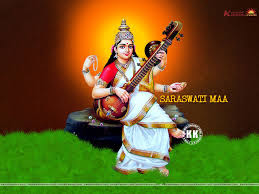VEDANTAM FOR BEGINNERS - 46. SWAMI SIVANANDA
=========================================================================
Monday, 26 Jun, 2023. 05:30.
TAT TVAM ASI = That Thou Art :
The Maha-Vakyas :
Post-46.
========================================================================
THE EXPERIENCER OF TRANSMIGRATORY EXISTENCE :
Transmigratory existence cannot be predicated of the Pure Self by virtue of Its being actionless; nor can it be predicated of the ego which is, devoid of a real existence, not a conscious entity. The only plausible explanation is that transmigratory existence is due to lack of proper discrimination between the Pure Self and the non-Self. Nevertheless, transmigratory existence has always an apparent existence solely due to the real existence of the Self, and further, appears to belong to the Self owing to indiscrimination. That is like the apparent existence had by the rope-snake on the basis of the reality of the rope, of course, prior to the discrimination between the rope and the snake.
It is only the people who cannot discriminate between the real and the unreal, between the Pure Self, Its reflection and the Intellect, who hold that the eternal Self is changeful on account of the modifications in the mind pertaining to It and is the experiencer of the transmigratory existence. They have no real understanding of the scriptures. They hold or mistake the ego to be the Self.
WORDS IMPLYING THE SELF :
The Vedas do imply the Self by the use of words like Knowledge, Existence, etc. There the implication becomes reasonable because the Self is of the nature of Pure Consciousness and Intellect has got the reflection of the Self in it. These words are directly applied to the Intellect carrying the reflection of the Pure Self in it and indirectly to the Pure Self.
It can be said that in words like ‘Karoti’ (He does), ‘Gacchati’ (He goes) etc., the Prakriti Artha of the Dhatu (meaning of the verb, it denotes an action) and the Pratyaya Artha (meaning of the verbal suffix, it denotes agency) belong to one and the same subject according to grammarians and laymen, whereas in words like ‘Jaanaati’ (He knows), the verb meaning and the meaning of the suffix denote two different subjects. The latter, exceptional case as it is, needs explanation.
In words like ‘Jaanaati,’ the meaning of the verbal suffix that involves an agent has reference to the reflection of the Self in the intellect and the meaning of the verb that involves an action has reference to a particular modification of the intellect. Due to indiscrimination between the reflection of the Self and the intellect, the word ‘Knows’ is wrongly applied to the Self. In reality, the intellect by itself, is devoid of consciousness and the Self is devoid of action; the word ‘Knows’ cannot be predicated of either of them on any reasonable ground whatsoever.
Knowledge construed to mean the action of knowing cannot be attributed to the eternal Self that is actionless. Knowledge in the sense of an instrument of the action of knowing can be applied only to the intellect and not to the Self. Possession of instrument implies agency and agency cannot be attributed to Self that is actionless. Neither can the word be applied to the Self in the senses of that which is the object of the action of knowing.
The Self is never knowable as an object, and is not denoted by any word directly by those who hold It to be Changeless, Actionless, Eternal and One only.
If the ego were the Self, then a word can be applied to it in its (the word’s) primary meaning, Vachyartha. But, that position can never be had on account of scriptural passages that state that the Self is free from hunger, thirst, etc. That reduces us to the position that the primary meaning of words are not applicable. That means that words having no primary meaning cannot have secondary (Lakshya) ones, too. In that case, the Vedas, too, will lose their authority, inasmuch as they will be using meaningless words; and that position is not desirable. Solving this problem will land us in a dilemma.
To accept the popular usage of words is to accept the doctrine of the Charvakas and take the body to be the Self. To accept the view of the learned is to arrive at the dilemma that a word cannot be applied to the intellect which is devoid of consciousness, and likewise, to the Self which is devoid of action. Neither can it be said that the authoritative Vedas use meaningless words.
People use words like ‘Knows’ etc. without proper discrimination between the reflecting medium (intellect) and that which is reflected (the Self). Agency is attributed to the Self in using words like ‘Knows’ etc. on account of the superimposition of the agency of the intellect upon the Self. Likewise, the intellect is called the Knower owing to the Superimposition of the Conscious Self upon it (the intellect). In short, there exists Paraspara-Adhyasa. Consciousness belongs to the Pure Self, of which action cannot be predicated. Knowledge is eternal and is identical with the Self; the intellect cannot create it. Persons who hold that knowledge is produced (and thereby predicate agency in the act of knowing etc. of the intellect) are merely deluded by the modifications of a non-conscious intellect that appears to be conscious.
To sum up, though, strictly speaking, words like ‘Knows’ etc. cannot be applied either to the intellect or the Self, their application is rendered possible owing to indiscrimination between the Self, the intellect and the reflection of the Self in the intellect.
*****
Next
NEED TO ASSUME A REFLECTION OF THE SELF
To be continued
=========================================================================













Comments